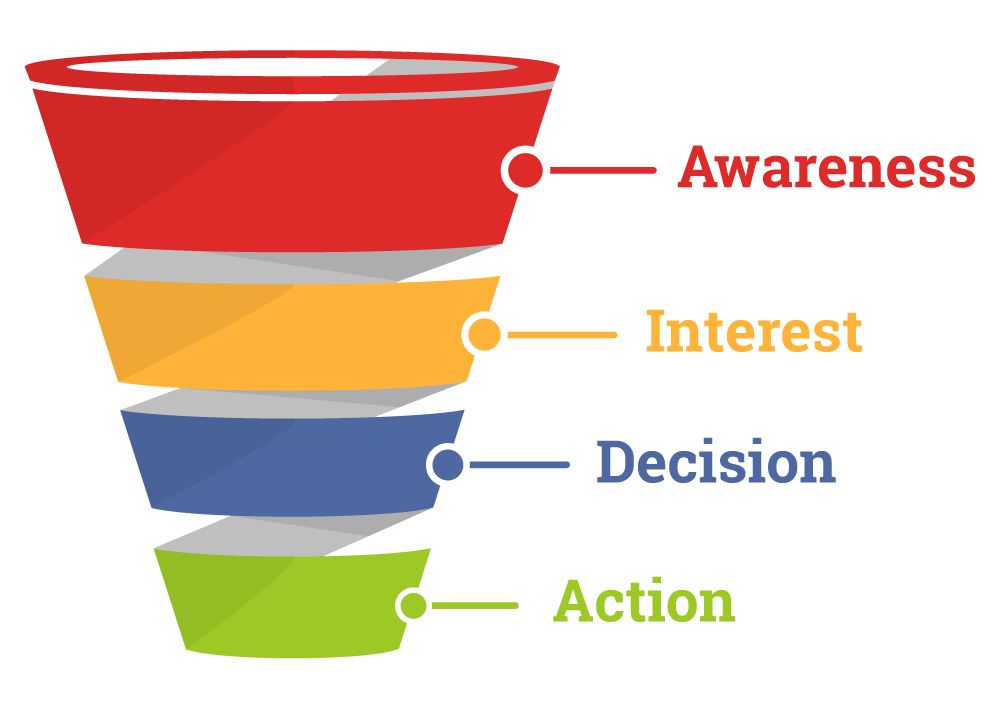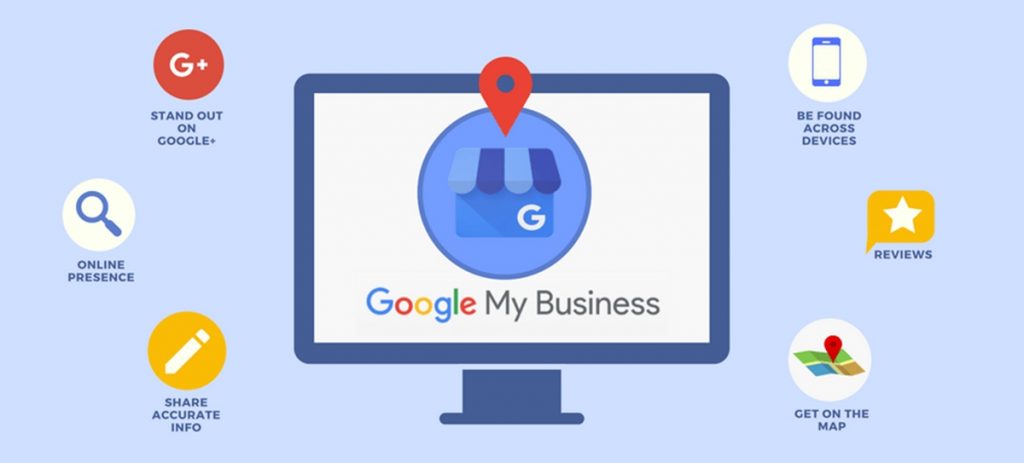In the dynamic world of business, digital marketing strategies are the compass guiding companies towards success. They are the blueprint for reaching customers, building brand awareness, and driving growth.
But the digital landscape is ever-evolving. New technologies, changing consumer behaviors, and emerging trends are constantly reshaping the way businesses market themselves online.
This constant change can be daunting. It can feel like trying to hit a moving target. But it also presents exciting opportunities for businesses willing to adapt and innovate.

In this article, we delve into the future of digital marketing strategies. We explore the latest trends, the most effective tactics, and the innovative tools shaping the future of online marketing.
This article is for you if you’re a business owner in Brisbane, a marketing worker in Australia, or just curious about digital marketing’s future.
We aim to provide a comprehensive guide, a glimpse into the future of digital marketing strategies. Our goal is to equip you with the knowledge and insights to navigate the digital marketing landscape of tomorrow.
So, let’s embark on this journey into the future of digital marketing strategies.
Understanding Digital Marketing in the Modern Business Landscape
Digital marketing is the use of online channels to promote a product, service, or brand. It encompasses a wide range of tactics, from search engine optimization (SEO) to social media marketing.

In today’s digital age, it’s more than just a buzzword. It’s a crucial part of any successful business strategy. With the majority of consumers now online, digital marketing is the most effective way to reach them.
But it’s not just about reaching consumers. It’s about engaging them, building relationships, and turning them into loyal customers. It’s about leveraging data to understand their needs and preferences, and delivering personalized experiences that resonate. In the modern business landscape, digital marketing is not just a strategy, it’s a necessity.
The Evolution of Digital Marketing Strategies
Digital marketing has come a long way since its inception. In the early days, it was all about having a website and sending out emails. But as technology advanced, so did the strategies.
Today, digital marketing is a complex field that involves a variety of tactics. From SEO and content marketing to social media and influencer marketing, businesses now have a plethora of strategies at their disposal. And with the rise of data analytics, they can now make more informed decisions, tailoring their strategies to their target audience’s behaviors and preferences.
As we look to the future, one thing is clear: digital marketing will continue to evolve. With advancements in AI, machine learning, and other technologies, businesses will need to stay ahead of the curve, constantly adapting their strategies to stay competitive.
The Role of Data Analytics in Shaping Marketing
Data analytics has become a cornerstone of effective digital marketing. It provides businesses with valuable insights into their customers’ behaviors, preferences, and needs. This information is crucial in shaping marketing strategies that resonate with the target audience.

With data analytics, businesses can track the performance of their marketing campaigns in real-time. They can see which strategies are working and which ones need improvement. This allows for quick adjustments, ensuring that resources are not wasted on ineffective tactics.
Looking ahead, the role of data analytics in digital marketing is set to grow even more. With advancements in AI and machine learning, businesses will be able to analyze data more accurately and efficiently. This will lead to more personalized and effective marketing strategies, driving business growth and customer satisfaction.
Personalization: The New Frontier in Digital Marketing
Personalization is rapidly becoming a key element in digital marketing strategies. It involves tailoring marketing messages and experiences to individual customers based on their preferences, behaviors, and past interactions. This approach can significantly enhance customer engagement and loyalty.

With the help of data analytics and AI, businesses can now deliver highly personalized content to their customers. This could be in the form of personalized emails, product recommendations, or targeted ads. Such personalized experiences make customers feel valued and understood, leading to higher conversion rates.
As we move into the future, personalization in digital marketing is set to become even more sophisticated. With advancements in technology, businesses will be able to deliver even more personalized and relevant experiences to their customers. This will not only enhance customer satisfaction but also drive business growth.
AI and Machine Learning: Transforming Strategies
Artificial Intelligence (AI) and Machine Learning (ML) are revolutionizing digital marketing strategies. These technologies are enabling businesses to analyze vast amounts of data, derive insights, and make data-driven decisions. This is leading to more effective and efficient marketing strategies.

AI and ML are being used in various aspects of digital marketing. They are used in predictive analytics, customer segmentation, personalization, and even content creation. These technologies are helping businesses to understand their customers better, predict future trends, and deliver more personalized experiences.
As we move into the future, the role of AI and ML in digital marketing is set to increase. Businesses that leverage these technologies will have a competitive edge. They will be able to deliver more relevant and personalized experiences to their customers, leading to higher customer satisfaction and loyalty.
Voice Search: SEO and Content Marketing’s Next Big Thing
Voice search is rapidly becoming a significant factor in SEO and content marketing. With the rise of smart speakers and voice assistants, more people are using voice search to find information online. This trend is changing the way businesses need to approach their SEO and content marketing strategies.

Voice search queries are typically longer and more conversational than text-based searches. This means businesses need to optimize their content for long-tail keywords and natural language. They also need to ensure their content answers the questions that users are asking through voice search.
As voice search continues to grow, businesses that adapt their SEO and content marketing strategies will have an advantage. They will be able to reach a larger audience and provide a better user experience. This will ultimately lead to higher search rankings and more traffic to their websites.
The Rise of Video Content in Engagement Strategies
Video content is becoming a crucial part of digital marketing strategies. It’s a powerful tool for engaging audiences and conveying complex information in an easy-to-understand format. As internet speeds increase and video platforms become more sophisticated, the use of video content is expected to continue rising.

Businesses are using video content in various ways. These include product demonstrations, customer testimonials, behind-the-scenes looks, and educational content. By incorporating video into their digital marketing strategies, businesses can increase engagement, improve brand recall, and drive more traffic to their websites.
However, creating effective video content requires careful planning and execution. It’s important to understand your audience, create compelling narratives, and optimize videos for SEO. With the right approach, video content can significantly enhance your digital marketing efforts and contribute to your business’s success.
Mobile Optimization: A Pillar of Digital Success
In today’s digital age, mobile optimization is no longer optional. It’s a necessity. With the majority of internet users accessing the web via mobile devices, businesses must ensure their websites are mobile-friendly.

Mobile optimization involves designing a website so it looks and functions well on mobile devices. This includes ensuring text is readable, links and buttons are easily clickable, and navigation is user-friendly. A mobile-optimized website not only provides a better user experience but also improves your website’s search engine ranking.
In the future, as mobile usage continues to rise, mobile optimization will become even more critical. Businesses that fail to optimize their websites for mobile risk losing potential customers and falling behind their competitors. Therefore, mobile optimization should be a key component of every business’s digital marketing strategy.
Social Media Platforms: Building Brands and Engaging Customers
Social media platforms have become a powerful tool for businesses to build their brands and engage with customers. They provide a platform for businesses to share content, interact with customers, and promote their products and services.

Platforms like Facebook, Instagram, Twitter, and LinkedIn allow businesses to reach a wide audience and engage with them on a personal level. This engagement can lead to increased brand loyalty and customer retention. Furthermore, social media platforms provide businesses with valuable insights into their customers’ preferences and behaviors, which can be used to refine marketing strategies.
In the future, social media will continue to play a crucial role in digital marketing. Businesses that effectively leverage social media platforms will have a competitive edge in the market. Therefore, a well-planned social media strategy should be an integral part of every business’s digital marketing plan.
Omnichannel Marketing: Creating a Cohesive Brand Experience
Omnichannel marketing is a strategy that provides a seamless and consistent experience across all customer touchpoints. It’s about ensuring that whether a customer interacts with a brand online, in-store, or through a mobile app, their experience is consistent and cohesive.

This approach is becoming increasingly important as customers now interact with brands through multiple channels. They might browse products online, then visit a physical store to make a purchase. Or they might see an ad on social media, then visit the brand’s website to learn more. In each case, the customer’s experience should be seamless and consistent.
In the future, omnichannel marketing will become even more critical. As technology continues to evolve, the number of customer touchpoints will only increase. Businesses that can provide a cohesive brand experience across all these touchpoints will have a significant advantage.
Chatbots and Messaging: Enhancing Customer Service
Chatbots and messaging apps are transforming the way businesses interact with their customers. These tools provide a quick and convenient way for customers to get answers to their questions, make purchases, and receive personalized recommendations.
Chatbots, in particular, are becoming increasingly sophisticated. They can now handle a wide range of customer service tasks, from answering frequently asked questions to processing orders. This not only improves the customer experience but also frees up human customer service representatives to handle more complex issues.
In the future, we can expect to see even more businesses adopting chatbots and messaging apps as part of their digital marketing strategies. As these tools continue to evolve, they will provide even more opportunities for businesses to engage with their customers in meaningful and personalized ways.
Augmented Reality and Virtual Reality: The Future of Campaigns
Augmented Reality (AR) and Virtual Reality (VR) are no longer just buzzwords in the tech world. They are becoming integral parts of innovative digital marketing strategies. These technologies offer immersive experiences, taking customer engagement to a whole new level.

AR allows businesses to overlay digital information onto the real world, providing customers with interactive and engaging experiences. For instance, furniture retailers can use AR to allow customers to visualize how a piece of furniture would look in their home. On the other hand, VR offers a fully immersive experience, transporting customers to a different world. Travel agencies, for example, can use VR to give customers a virtual tour of a holiday destination.
As AR and VR technologies continue to evolve, they will offer even more opportunities for businesses to create innovative and engaging marketing campaigns. The future of digital marketing lies in leveraging these technologies to provide customers with unique and memorable experiences.
User Experience (UX): Its SEO Implications and Importance
User Experience (UX) is a crucial aspect of digital marketing strategies. It refers to the overall experience a user has while interacting with a website or digital product. A positive UX can lead to higher user engagement, increased brand loyalty, and improved conversion rates.

UX is not just about aesthetics; it also involves website functionality, ease of navigation, and page load speed. These factors significantly impact SEO. Search engines like Google prioritize websites that offer a superior UX, leading to higher search rankings. Therefore, businesses must focus on improving their website’s UX to enhance their SEO efforts.
In the future, UX will continue to play a pivotal role in digital marketing strategies. As user expectations evolve, businesses must stay ahead by continuously improving their UX, ensuring it meets the needs and preferences of their target audience.
Content Marketing: Crafting Valuable and Relevant Content
Content marketing is a strategic approach focused on creating and distributing valuable, relevant, and consistent content. The goal is to attract and retain a clearly defined audience, ultimately driving profitable customer action. It’s a key component of effective digital marketing strategies.

In the digital age, content is king. High-quality content can help businesses establish authority, build trust with their audience, and improve their SEO. It’s not just about producing content; it’s about producing content that provides value to your audience. This could be in the form of blog posts, videos, infographics, or podcasts.
Looking ahead, content marketing will continue to be a vital part of digital marketing strategies. As consumer preferences shift towards more personalized and engaging content, businesses must adapt their content strategies accordingly. This means creating content that resonates with their audience and aligns with their brand values.
Influencer Marketing: Reaching Target Audiences Effectively
Influencer marketing is a type of social media marketing that uses endorsements and product mentions from influencers. These individuals have a dedicated social following and are viewed as experts within their niche. It’s a strategy that can effectively reach target audiences and drive engagement.

Influencer marketing is not just about celebrity endorsements. Micro-influencers, those with a smaller but highly engaged following, can often provide better results. They are seen as more relatable and trustworthy by their followers, leading to higher engagement rates.
As we look to the future, influencer marketing will continue to evolve. With the rise of new social media platforms and changing consumer behaviors, businesses must stay ahead of the curve. This means finding the right influencers who align with their brand and can authentically engage their target audience.
Local SEO: Targeting Specific Regions Like Brisbane
Local SEO is a crucial component of digital marketing strategies, especially for businesses targeting specific regions. For instance, businesses in Brisbane can benefit greatly from local SEO. It helps them to rank higher in local search results, increasing their visibility to potential customers in the area.

Local SEO involves optimizing your online presence to attract more business from relevant local searches. This includes claiming and optimizing your Google My Business listing, gathering positive customer reviews, and optimizing your website content and metadata for local keywords.
In the future, local SEO will continue to be a key strategy for businesses targeting specific regions. As search engines become more sophisticated, businesses will need to stay updated with the latest local SEO strategies to remain competitive. This includes keeping up with changes in local search algorithms and adapting to new trends in local search behavior.
Ethical Marketing Practices and Data Privacy
In the digital age, ethical marketing practices and data privacy have become increasingly important. Consumers are more aware of their digital rights and are demanding greater transparency from businesses. This has led to a shift in digital marketing strategies, with a greater emphasis on ethical practices and data privacy.
Data privacy involves protecting personal information from unauthorized access, use, or disclosure. In digital marketing, this means ensuring that customer data is collected, stored, and used in a manner that respects individual privacy rights. This includes obtaining explicit consent for data collection, providing clear and accessible privacy policies, and implementing robust data security measures.
In the future, businesses that prioritize ethical marketing practices and data privacy will be more likely to earn the trust and loyalty of their customers. This will not only enhance their brand reputation but also contribute to long-term business success.
Predictive Analytics for Targeted Campaigns
Predictive analytics is a game-changer in digital marketing. It involves using historical data, statistical algorithms, and machine learning techniques to predict future outcomes. In the context of digital marketing, predictive analytics can help businesses anticipate customer behavior and trends.
This powerful tool allows marketers to create more targeted and personalized campaigns. By understanding what a customer is likely to do next, businesses can tailor their marketing messages to meet individual needs and preferences. This can significantly improve customer engagement and conversion rates.
In the future, predictive analytics will play an even more critical role in digital marketing strategies. As the volume of customer data continues to grow, businesses that can effectively leverage this information will have a significant competitive advantage. They will be able to deliver more relevant and personalized experiences, driving customer loyalty and business growth.
Integrating Digital with Traditional Marketing Methods
The digital age has not rendered traditional marketing methods obsolete. Instead, it has opened up opportunities for integration. Combining digital and traditional marketing methods can create a more comprehensive and effective marketing strategy.
Traditional marketing methods, such as print advertising, direct mail, and television commercials, still have a broad reach. They can be particularly effective in targeting older demographics who may not be as digitally engaged. When these methods are integrated with digital strategies, businesses can reach a wider audience and create a more cohesive brand experience.
In the future, the integration of digital and traditional marketing methods will become even more critical. As the marketing landscape continues to evolve, businesses that can adapt and leverage both digital and traditional methods will be better positioned to succeed. They will be able to engage their audience on multiple platforms, enhancing their reach and impact.
Continuous Learning and Adaptation in Digital Marketing
The digital marketing landscape is ever-evolving. New technologies, platforms, and consumer behaviors continually shape and reshape the way businesses market their products and services online. To stay competitive, continuous learning and adaptation are crucial.
Digital marketers must stay abreast of the latest trends, tools, and best practices. They must be willing to experiment with new strategies, measure their effectiveness, and adjust as necessary. This requires a commitment to ongoing education and a willingness to embrace change.
In the future, the pace of change in digital marketing is likely to accelerate. Businesses that can adapt quickly and effectively will have a significant advantage. They will be better positioned to engage their audience, meet their marketing objectives, and drive business growth.
Conclusion: Staying Ahead in the Digital Marketing Game
The future of digital marketing strategies is both exciting and challenging. As technology continues to evolve, so too will the ways in which businesses reach and engage with their customers. Staying ahead in this dynamic landscape requires a commitment to learning, adaptation, and innovation.
Businesses must be willing to embrace new technologies and strategies, from AI and machine learning to voice search and video content. They must also prioritize personalization, delivering tailored experiences that meet the unique needs and preferences of their customers. This requires a deep understanding of their audience, as well as the ability to leverage data and analytics effectively.
In the competitive markets of Brisbane and Australia, a robust digital marketing strategy is more important than ever. Businesses must leverage the power of digital marketing to enhance their visibility, engage their audience, and drive growth. This requires a strategic approach, one that aligns digital marketing efforts with broader business objectives.
In conclusion, the future of digital marketing strategies is bright. With the right approach, businesses can leverage these strategies to achieve their marketing objectives, stay competitive, and drive long-term success. The future is digital, and the businesses that embrace this reality will be the ones that thrive.